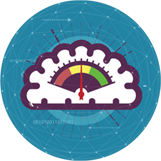(2007). Understanding words in context: the role of Broca’s area in word comprehension. Brain Research, 1146, 101-114.
Abstract: What role does meaning selection play in word comprehension, and what neural systems support this selection process? Most words have multiple meanings and are therefore ambiguous. This is true of both homonymous words (words that have multiple unrelated meanings) and polysemous words (words that have multiple related meanings). The extant evidence indicates that meaning selection is an integral part of homonym comprehension. However, it is not known whether meaning selection extends to polysemous words, or what neural systems support meaning selection during comprehension. Prior neuroimaging and neuropsychological evidence suggest that the left inferior frontal gyrus (LIFG) may play a role in resolving competition during language processing. We therefore sought to test the hypotheses that meaning selection is part of polysemous word comprehension, and that the LIFG resolves meaning competition during word comprehension. We tested healthy participants on a version of the triplet lexical decision task, with polysemous and homonymous stimuli. Results suggest that the meanings of polysemous words, like the meanings of homonyms, are selected based on context. However, homonymous and polysemous words differed in how meaning frequency affected meaning selection. We then administered the triplet lexical decision task to patients with LIFG damage to examine whether this region plays a role in context-dependent meaning selection. Results support the hypothesis that the LIFG serves as a top-down biasing mechanism that facilitates rapid meaning selection during word comprehension. We conclude that context-dependent meaning selection is an integral part of word comprehension for both homonyms and polysemous words, and that the LIFG facilitates this selection process. »PDF
